2024 Global Health Measures for Business Aviation: Disinsection & Disease Restriction Guide
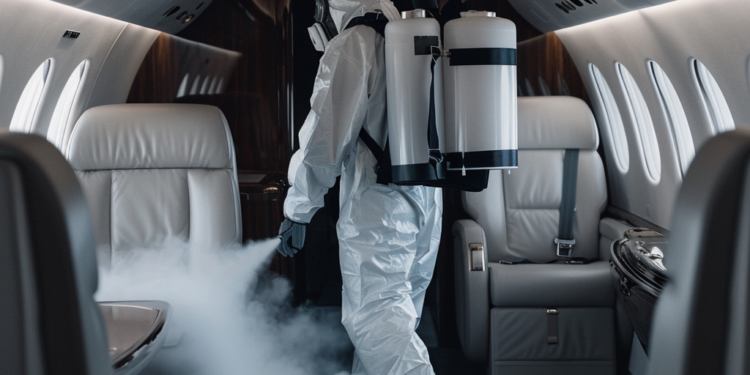
In recent years, the global health landscape has shifted dramatically. While COVID-19 dominated attention for some time, other health risks are now re-emerging as significant regulatory concerns for the business aviation sector. This comprehensive guide focuses on the resurgence of Zika Virus, Dengue Fever, monkeypox, and other disease vectors, detailing their impact on international flight operations.
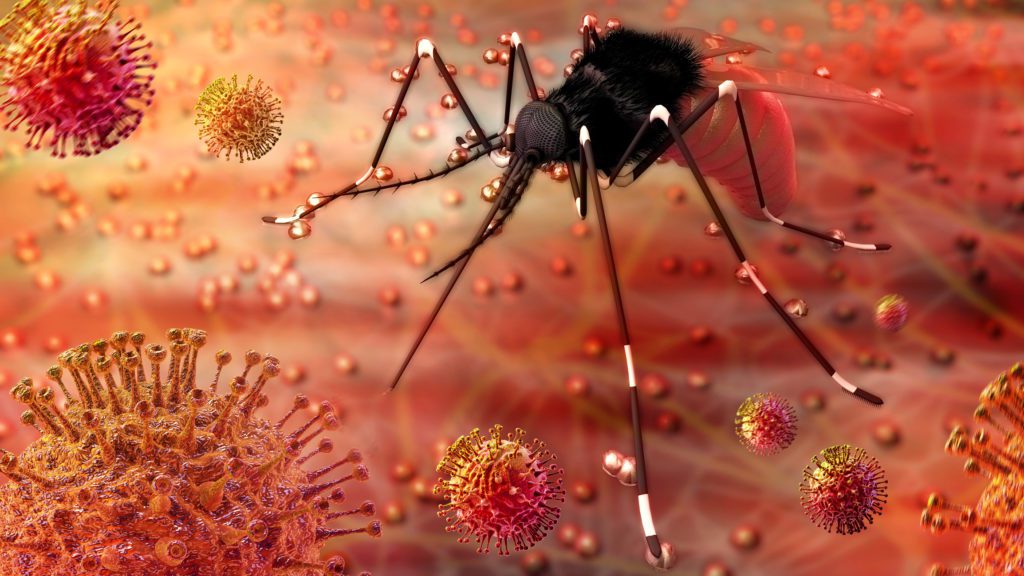
Global Disease Context

Understanding the diseases driving new regulations is crucial for operators:
Zika Virus
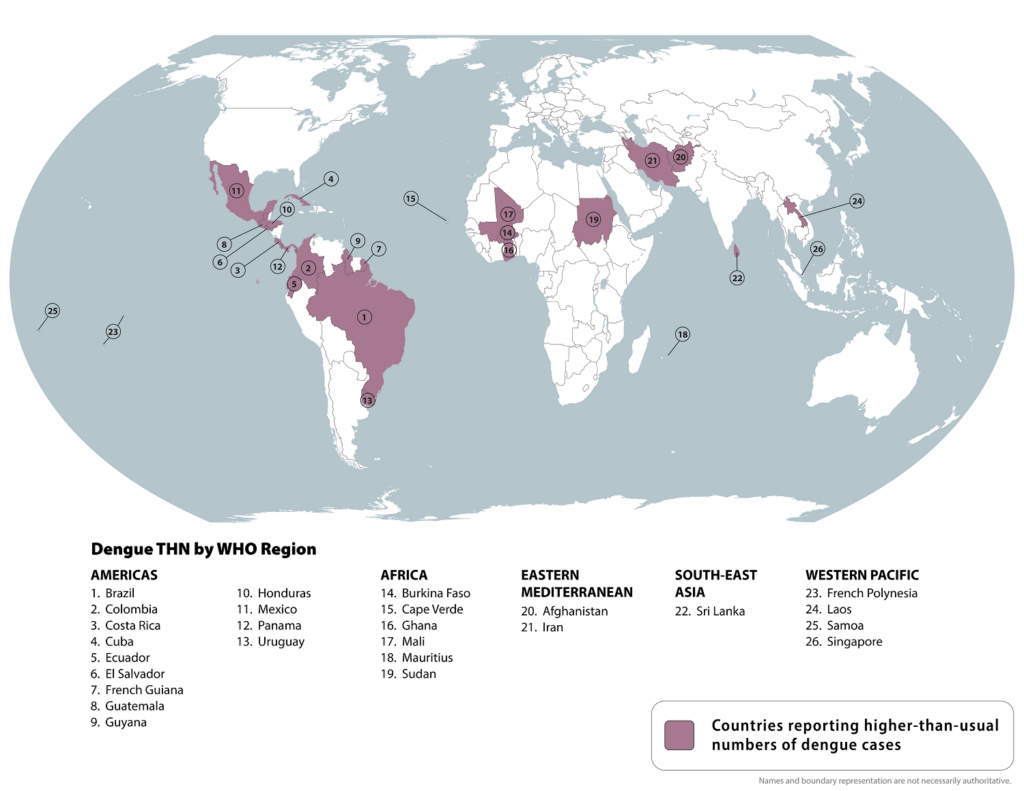
- 94 countries and territories with confirmed local transmission
- CDC maintains an updated list of countries with active Zika transmission.
Dengue Fever
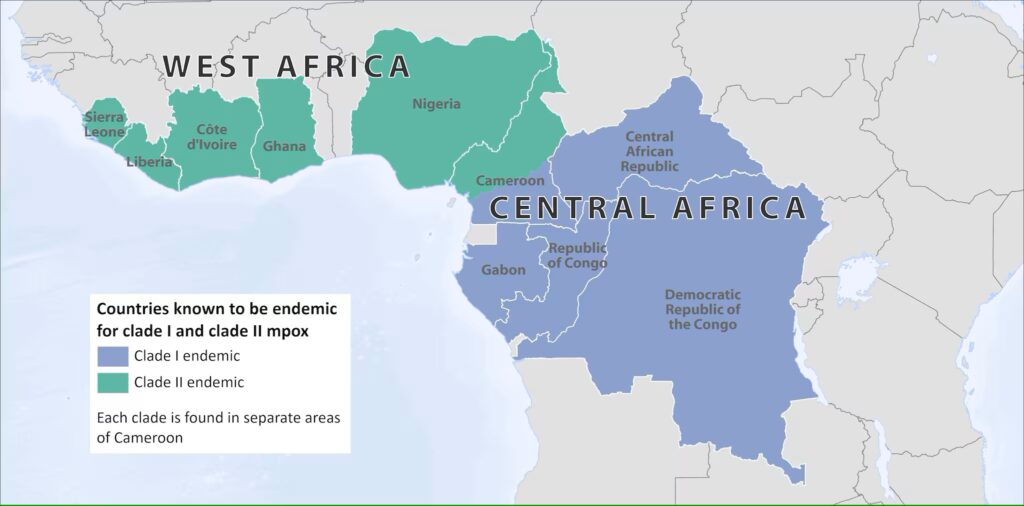
- CDC Level 1 travel notice issued globally
- Nearly 5 million cases and over 5,000 deaths across 80+ countries
- Spreading to new areas, including Europe
- Symptoms: fever, nausea, vomiting, rash, body aches
- No vaccine available for U.S. travelers
Monkeypox (Mpox)

While not directly impacting disinsection requirements, mpox has led to additional health measures:
- Enhanced screening in China, Pakistan, South Africa, Kenya, Indonesia, Nigeria, Thailand, Singapore, Philippines, and Malaysia.
- Measures range from increased surveillance to mandatory testing and vaccination offerings.
Key Restrictions by Country
Italy: Complex Disinsection Requirements & Our Recommendation
Italy’s disinsection rules continue to present challenges due to inconsistent enforcement across airports. While residual disinsection remains the preferred method, Italian authorities now officially allow “self-spray” before departure as an alternative. This option, always present in WHO guidelines, has recently been formalized in an August 6th ordinance.
However, Universal Aviation Italy does not recommend relying by default on the self-spray method.
Here’s why:
- Inconsistent acceptance: Not all airports are aware of or accept this option.
- Varied implementation: Rules are applied differently depending on the airport, the airport of origin, the time planned to be on the ground, etc.
Key points:
- Disinsection required for aircraft visiting Zika or Aedes Aegypti-affected countries in the past 28 days
- Many countries on the “must disinsect” list, including the U.S. and France
- If disinsection is not applicable, a written declaration is required
- Enforcement is highly inconsistent: Some airports strictly apply rules, others are more relaxed
- Local health authorities interpret and enforce regulations differently at each airport
Process for written declaration (if disinsection not applicable):
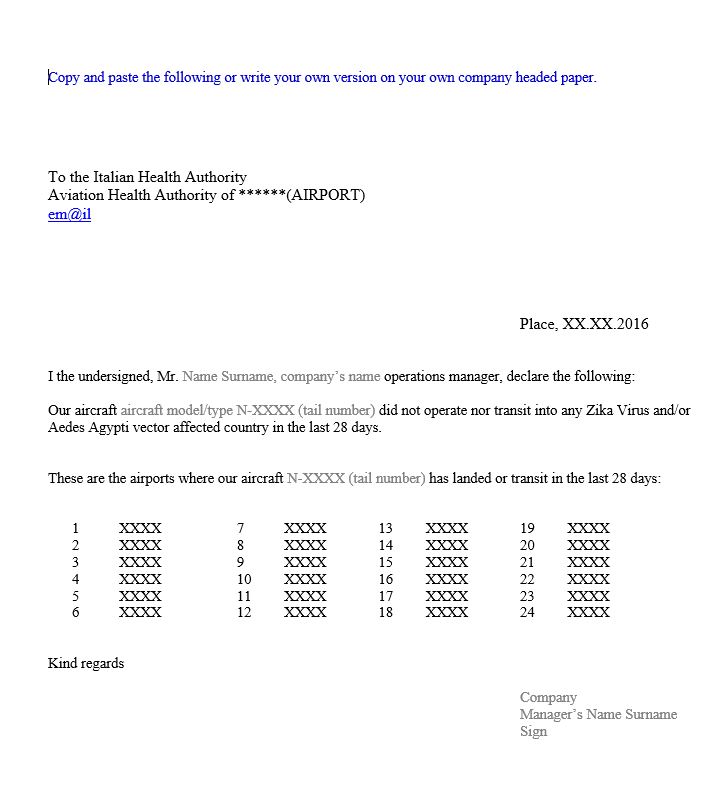
- Provide a document in Italian and English on company letterhead
- State the aircraft hasn’t visited affected countries in the past 28 days
- List all airports visited in the last 28 days
- Email to Health Authority office at least 12 hours before landing
Disinsection procedure:
- 15-20 minutes for spraying after passengers exit
- 1 hour cabin closure
- 1 hour for airing out
- Total time: approximately 2.5 hours
- Crew must remain at the airport until the procedure is completed and a receipt is issued
Operator non-compliance:
- No reported fines or penalties for non-compliance yet
- One known case: aircraft without required certificate was sprayed immediately upon landing
- Future enforcement unknown, but compliance strongly recommended
Milan Linate and Malpensa: Japanese Beetle (Popillia Japonica Newman) Control Measures
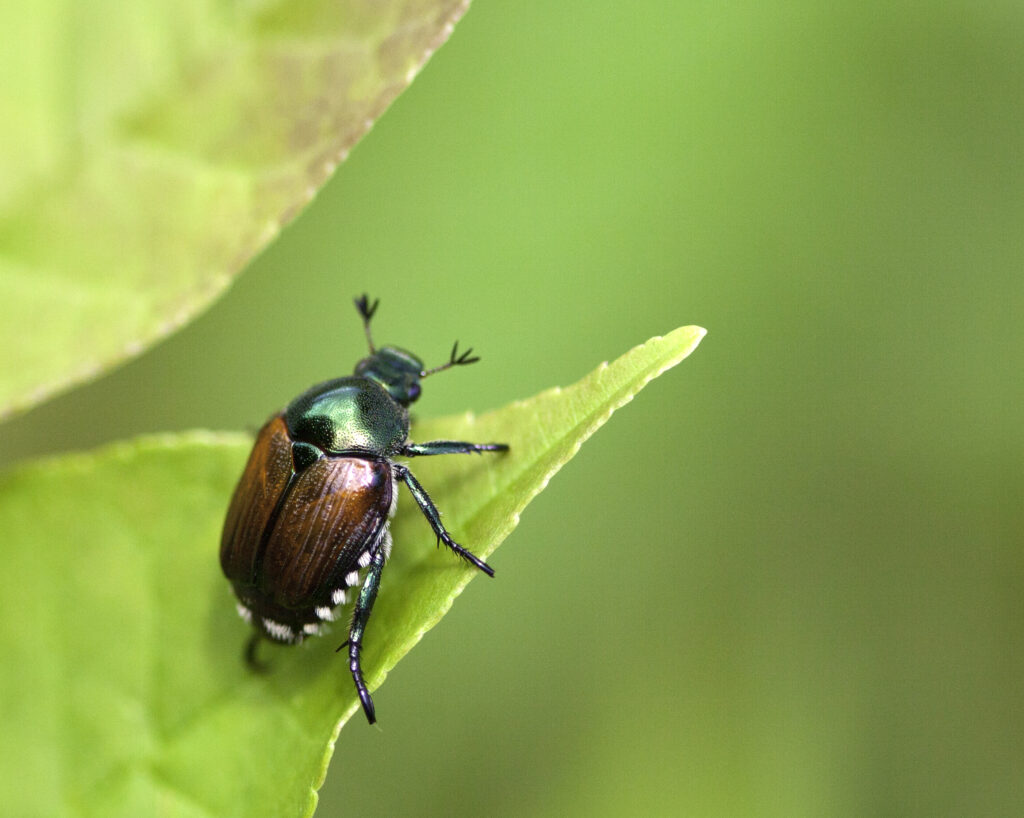
Note: Requirements are subject to airport audits and may not always be in effect.
Phased Implementation:
- Phase 1: Minimize door opening during handling operations
- Phase 2: Disinsection for departures between 10:00-16:00 local time
- Phase 3: Disinsection for all departures
Documentation: Disinsection certificate required onboard for inspection
Compliance:
- No reported fines/penalties
- One case: Non-compliant aircraft sprayed on landing
- Future enforcement uncertain; compliance recommended
2024 Update:
- Milan reached Phase 2
- Measures suspended in August, currently not in effect
Recommendation: Contact Universal Aviation Italy for current requirements at Italian airports
Egypt: Stringent Vector Control Measures
Egypt has implemented strict requirements for aircraft arriving from 28 countries identified as infected with disease vectors.
Measures include:
- Mandatory spraying of passenger cabins and baggage compartments
- Use of WHO-approved sprays (Permethrin or D-Phenothrin)
- Submission of passenger lists, aircraft general declaration, and empty spray containers
Note: Non-compliance risks a $1,000 fine, with potential ECAA action for repeat violations.
Malaysia: WMSA Requirements
For all international flights arriving at Sultan Abdul Aziz Shah Airport (WMSA):
- Aircraft must be disinfected with insecticide before landing
- Operators must submit residual disinsection certificates upon arrival
China: Cicada Infestation Protocol
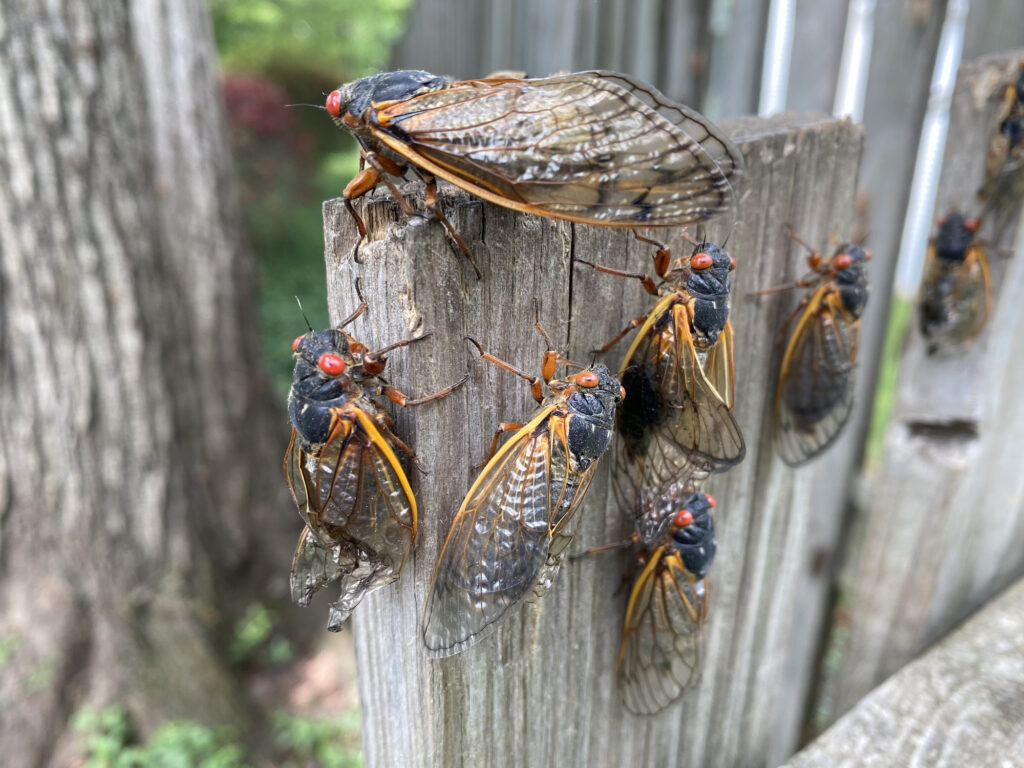
Specific guidelines for inbound flights to Shanghai/ZSPD from the U.S.:
- Implement thorough insect prevention before departure
- Establish agreements with qualified de-pesting units
- Adhere strictly to customs requirements, especially for night cargo flights
Information on Approved Insecticides
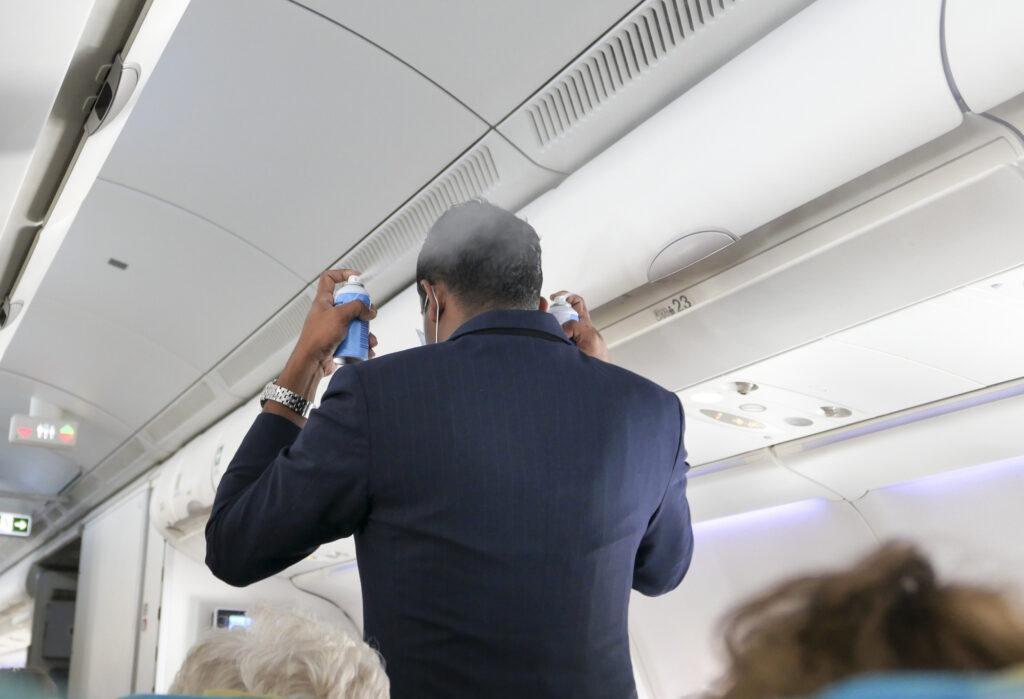
- Details on Zika virus and Dengue risks available on the World Health Organization site
- Current list of countries with active Zika virus transmission on the CDC website
- Approved insecticides not readily available in the U.S. due to EPA regulations
- Most international locations requiring disinsection provide these insecticides upon arrival
Risk Mitigation for Operators
- Verify latest requirements with 3rd-party providers or ground handlers before international travel
- Stay informed through WHO and CDC websites
- Implement WHO-recommended precautions:
- Use insect repellents
- Wear long-sleeved shirts and long pants (preferably light-colored)
- Ensure accommodations have screens or air conditioning
- Use physical barriers such as screens, closed doors, and windows
- Sleep under mosquito nets
- Remove potential mosquito breeding sites (empty, clean, or cover water containers)
Conclusion
The landscape of health-related aviation regulations is complex and rapidly evolving. While Italy currently has the most stringent disinsection requirements, operators should be prepared for other countries to implement similar measures as disease outbreaks continue.
Before traveling internationally, GA operators should:
- Verify the latest Zika virus and Dengue Fever risk areas
- Check related disinsection requirements with 3rd-party providers or ground handlers
- Consult the CDC website for additional Zika and Dengue information
- Stay updated on locations with active virus transmission
Staying informed and adaptable is crucial for ensuring smooth operations in this challenging regulatory environment. As global health situations evolve, more countries may follow suit with stringent measures to control disease vectors.




